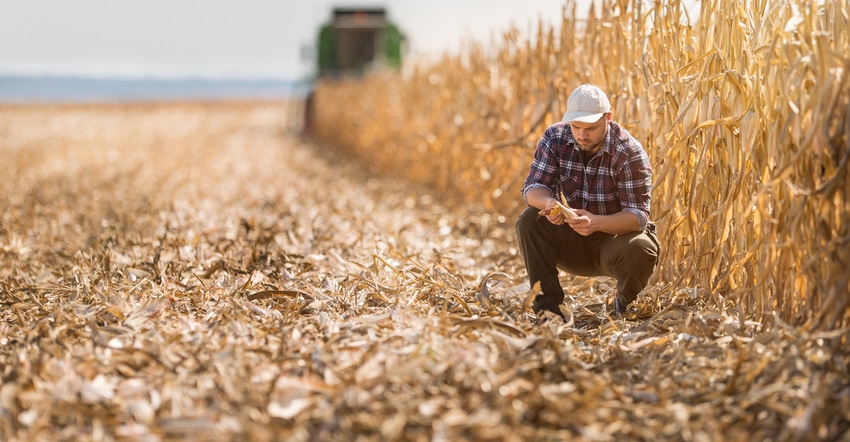August 10, 2018

There are differences in life on a farm, compared to non-farm everyday life. Notable differences.
For example, if someone asks, "What did you do all day farming?" It usually involves piles. If the job of the day was making hay, there is a higher pile of hay in the loft. If the day's work was to spread manure, then there is a smaller pile by day's end. Farm life can be measured in piles of different sizes. Sometimes, however, there are differences in perception between the farming community and the non-farming community that are not visibly recognized, but those differences need to be appreciated … and compensated.
Some differences of perceptions are based upon resources of money and energy.
Take, for instance, hobby farmers. Many times, they are individuals who farm with money. In contrast, real farmers farm to make money. Duly noted, both have tired bodies and dirty clothes at the end of the day. No difference there. But, real farmers, after a day of blood, sweat, and tears, lay down at night with their physical energy spent, trying to figure out how to make ends meet.
After a day of blood, sweat and volunteering to be a farmer, hobby farmers lay down at night with their energy spent, wondering how they can get to their day job with such a tired body. Hopefully, both sleep well after a hard day's work.
Hard work is appreciated through farming. Kids that grow up on a farm know the meaning of hard work. Kids that did not grow up farming might think they know hard work, until the day they volunteer to help a farming friend who called upon them to feed livestock by wheelbarrow in the hot sun all day when a tractor breaks down.
At the end of the day, the newbie farmers realize their bodies have never been this tired and their clothes have never been so dirty. And then, after that day of helping on a farm, the new members of the farming community eat the biggest meal of their lives, because they are starved after a hard day's work. They now know and appreciate where food comes from.
Farmers and the non-farming community have different perceptions of the resources of money and energy.
In addition to these perceptions, there are differences in perceptions of weather between the farming and non-farming community, which might also relate to money and energy.
For example, consider a season of good summer weather. For non-farming individuals, a good summer allows for the opportunity to go camping, hiking, boating or some other outdoor recreational activity. Good summer weather for farmers, though, allows for the opportunity to work hard, harvest high yields and potentially hope to pay down farm debt. However, good weather produces market fluctuations and, therefore, high yields are subject to high supply and lower prices, which may ultimately result in lots of work to gather a bountiful harvest but low payment on debt due to market fluctuations.
Good weather gets the farmer more work and sometimes less pay, while good weather results in recreational time spent for the non-farm community. Likewise, even on a daily basis, weather can be perceived differently. When a storm comes up, the non-farming community hopes for school or work to be cancelled and have a day off. When a storm kicks up, for the farming community, farmers have to dig down deep and determine how to still get their job done despite the rough weather, usually resulting in a longer day. The end result is this: More energy is needed by the farmers on rough weather days, while less energy spent by the non-farming community due to a day off from inclement weather.
And finally, there is the perception of loss of life, experienced differently by the farm community compared to the non-farming community. If any non-farming individual, for example, loses a pet, there is an emotional loss experienced. Similarly, when a farmer who has livestock witnesses the passing of a prized cow, this is certainly an emotional tragedy that is also compounded with a financial loss.
And then consider the ultimate loss of life—the death of the head of a family. If a farming family loses grandpa, the farming family loses the family member who started the tradition of farming and all the knowledge gained through a lifetime. Only he knows where everything is located in the barn. Only he can tell the stories of the years of the drought and hail. While money matters, the knowledge, stories and wisdom … these are priceless.
It looks like the differences in perception from the farm community to the non-farming community come full circle. The differences in perception — from money and energy resources, to weather, to the value of life — are unique due to the farmer's unique view point. And in the end, it does come back around to money, but more importantly, farming makes contributions that are priceless.
The question becomes this: How does society fix the non-farming community's perception of farming and put more value on it?
Maybe … if only more kids would grow up helping a farm friend and grow to appreciate where food comes from, so that farmers can be compensated fuller for their stewardship of the land and the use and development of resources that the weather allows. Then maybe there would be a better value on the hard work of farming, resulting in financially rewarding the farmers who feed us. Farmers make a difference.
There is a pile of differences made by farming that need to be appreciated and compensated.
Tomko is a freelancer, professor and farmer from Rittman.
About the Author(s)
You May Also Like




